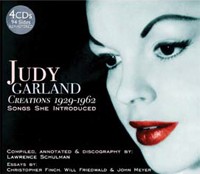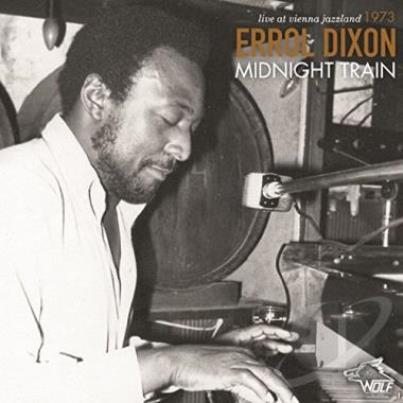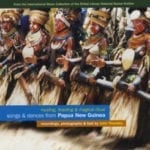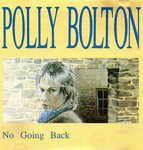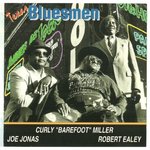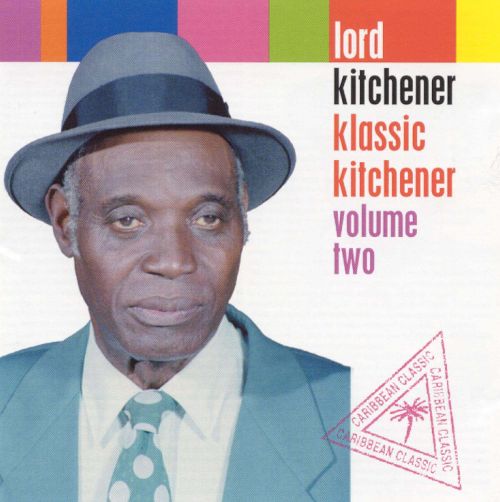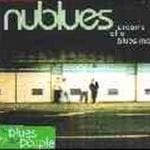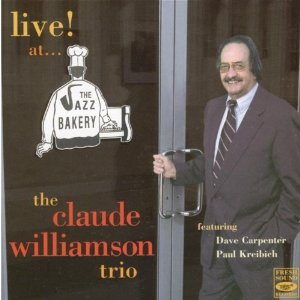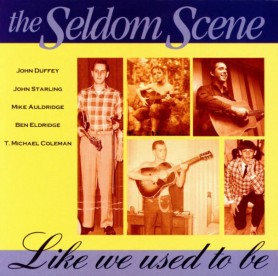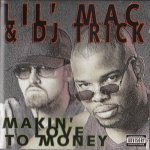Judy Garland – Creations 1929-1962 – Songs She Introduced – 4CD
€24,20
Description
Compiled by notable Garland collector Larry Schulman this is an important collection of songs that the divine Judy Garland debuted and created the template for other singers to follow.
With added essays by experts Christopher Finch, Will Friedwald and John Meyer this is a 'collectors dream'-a superbly presented collection of both the well known and ultra rare. The songs that Judy Garland sang first.
Track Listing:
CD1: It's Love I'm After - 1929-1940
1. Blue Butterfly - 2. Hang On To A Rainbow - 3. Stompin’ At The Savoy - 4. Waltz With A Swing/Americana - 5. The Balboa - 6. The Texas Tornado - 7. It’s Love I’m After - 8. Everybody Sing (w. Sophie Tucker) - 9. Your Broadway And My Broadway - 10. Yours And Mine - 11. Swing Mr. Mendelssohn - 12. Got A Pair Of New Shoes - 13. Down On Melody Farm (w. Allan Jones, Reginald Gardiner, and Lynne Carver) - 14. Ever Since The World Began / Shall I Sing A Melody? - 15. Why? Because! (w. Fanny Brice) - 16. It Never Rains But What It Pours - 17. In Between - 18. Meet The Beat Of My Heart - 19. Ten Pins In The Sky - 20. On The Bumpy Road To Love - 21. The Jitterbug (w. Ray Bolger, Jack Haley, Buddy Ebsen, and Bert Lahr) - 22. Over The Rainbow - 23. Good Morning (w. Mickey Rooney) - 24. Sweet Sixteen - 25. Oceans Apart - 26. Figaro
CD2: When I Look At You - 1941-1943
1. (Can This Be) The End Of The Rainbow - 2. Nobody - 3. Drummer Boy - 4. Do The La Conga (w. Mickey Rooney) - 5. It’s A Great Day For The Irish - 6. A Pretty Girl Milking Her Cow - 7. Laugh? I Thought I’d Split My Side (w. Charles Winninger) - 8. Our Love Affair - 9. We Must Have Music (w. Tony Martin) - 10. Minnie From Trinidad - 11. How About You? (w. Mickey Rooney) - 12. Hoe Down (w. Mickey Rooney) - 13. Chin Up! Cheerio! Carry On! - 14. Babes On Broadway - 15. Three Cheers For The Yanks - 16. Tom, Tom, The Piper’s Son - 17. When I Look At You - 18. Paging Mr. Greenback - 19. The Joint Is Really Jumpin’ Down At Carnegie Hall (w. Jose Iturbi at the piano) - 20. Boys And Girls Like You And Me - 21. The Trolley Song - 22. The Boy Next Door -
CD3: Better Luck Next Time - 1943-1948
1. Have Yourself A Merry Little Christmas - 2. A Great Lady Has An Interview (aka The Interview; Madame Crematante) - 3. You’ve Got Me Where You Want Me (w. Bing Crosby) - 4. On The Atchison, Topeka And The Santa Fe - 5. In The Valley (Where The Evening Sun Goes Down) - 6. My Intuition (w. John Hodiak) - 7. March Of The Doagies - 8. Hayride (w. Ray Bolger) - 9. Connecticut (w. Bing Crosby) - 10. It’s A Great Big World (w. Virginia O’Brien and Marion Doenges) - 11. Don’t Tell Me That Story - 12. There Is No Breeze (To Cool The Flame Of Love) - 13. Love Of My Life - 14. You Can Do No Wrong - 15. Voodoo - 16. Be A Clown (w. Gene Kelly) - 17. Mr. Monotony - 18. A Couple Of Swells (w. Fred Astaire) - 19. Mack The Black - 20. It Only Happens When I Dance With You (with Roger Edens at the piano) - 21. A Fella With An Umbrella (w. Peter Lawford) - 22. Better Luck Next Time
CD4: It's A New World
1. Merry Christmas - 2. Let’s Go West Again - 3. If You Feel Like Singing, Sing - 4. (Howdy, Neighbor) Happy Harvest - 5. Friendly Star - 6. All For You (w. Gene Kelly) - 7. You, Wonderful You (w. Gene Kelly) - 8. Send My Baby Back To Me - 9. Heartbroken - 10. Without A Memory - 11. Here’s What I’m Here For - 12. Gotta Have Me Go With You (w. Don McKabe and Jack Harmon) - 13. The Man That Got Away - 14. It’s A New World - 15. Someone At Last - 16. Lose That Long Face - 17. Maybe I’ll Come Back - 18. It’s Lovely To Be Back In London - 19. The Faraway Part Of Town - 20. Sweet Danger - 21. Little Drops Of Rain - 22. Take My Hand, Paree - 23. Paris Is A Lonely Town - 24. Roses Red, Violets Blue
Reviews:
1. theseconddisc.com
In the first two lines of the introductory essay that accompanies JSP Records’ new box set Judy Garland – Creations 1929-1962: Songs She Introduced, the box’s compiler Lawrence Schulman sets forth its raison d’être: “That Judy Garland (1922-1969) was one of the most talented singers and actresses of her generation is known. That she introduced close to a hundred songs to the Great American Songbook is not.” Thanks to this 4-CD, 94-song collection, that secret shouldn’t be a secret any longer. Many of the songs introduced by Judy Garland have gone on to have lives of their own. “How About You?,” “On the Atchison, Topeka and the Santa Fe,” “The Boy Next Door,” “Have Yourself a Merry Little Christmas,” and “The Man That Got Away” are just a few of the perennials first sung by Garland. And let’s not forget a little song called “Over the Rainbow.” All of those are here, and many more, from 1929’s “Blue Butterfly” sung by the seven-year old still known as Frances Gumm to 1962’s “Roses Red, Violets Blue,” sung by Judy Garland – capital “J,” capital “G.”
The four discs are divided by period (1929-1940, 1941-1943, 1943-1948 and 1948-1962) and feature songs from a “Who’s Who” of American music. Harold Arlen, “Yip” Harburg, Ira Gershwin, Cole Porter, Richard Rodgers and Oscar Hammerstein II, Irving Berlin, Hugh Martin, Ralph Blane, Harry Warren, and Johnny Mercer are some of the more familiar composers and lyricists here. Their melodies afforded Garland the opportunity to sing swing, jazz, pop, novelties, comic songs and dramatic tour de forces alike; in other words, the gamut of popular song of the day. Almost from the very start, Garland could imbue her material with a never-replicated blend of vulnerability and bravura. Even when belting to the rafters, there is an intimacy in a Judy Garland vocal. Though many of these songs are from motion pictures, one needn’t see the accompanying visuals to realize why this particular artist still captivates and fascinates today. (At the time of this writing, Olivier and Tony Award nominee Tracie Bennett is still touring as Garland in the play End of the Rainbow. And that show wasn’t even the first on Broadway with Judy Garland as a character.) Indeed, despite her impressive body of work as a recording artist for Decca and Capitol, Garland may be the only major interpretive singer to have primarily created her art on the silver screen. Creations allows listeners to appreciate that considerable oeuvre on a purely aural level.
Hit the jump to explore further!
Though “Over the Rainbow” remains nearly everybody’s introduction to Judy Garland, it comes 22nd on the first disc of JSP’s chronologically-assembled set. The first couple of tracks, from 1929, are almost unrecognizable as the singer’s work, which is understandable. But by 1936’s big-band “Stompin’ at the Savoy,” those unmistakable tones – however youthful, even compared to the voice of Dorothy Gale just three short years later – are already in place. Chick Webb, Ozzie Nelson and Benny Goodman had all recorded Edgar Sampson’s melody as an instrumental, but 14-year old Garland was the first to sing it with lyrics. Her craft isn’t yet fully developed and the swinging isn’t effortless on “Savoy,” but the ingredients were all there. A rhythmic sensibility to match the great jazz singers would come in time. The performances on the first disc showcase the singer’s preternaturally mature voice on songs recorded for films including Pigskin Parade, Broadway Melody of 1938, Thoroughbreds Don’t Cry, Love Finds Andy Hardy, and of course, The Wizard of Oz.
“It’s Love I’m After,” from the star’s very first feature film Pigskin Parade, is one of the earliest examples here of a Garland anthem. She was at home from the start with “big” songs, commanding all to “get happy!” (not to mention foreshadowing another song she’d immortalize – although she didn’t introduce “Get Happy”) in Arthur Freed and Nacio Herb Brown’s “Everybody Sing.” The young dynamo scatted in songs like “Your Broadway and My Broadway” and “Swing Mr. Mendelssohn” and was brash in songs like Roger Edens’ “Shall I Sing a Melody?” from Everybody Sing. Edens, a key figure in Garland’s life and career, gave her an early chance to play precociously wistful in “In Between” from Love Finds Andy Hardy: “I’m past the stage of doll and carriage/I’m not the age to think of marriage/I’m too old for toys and I’m too young for boys/I’m just an in-between…” Tracing the development from “In Between” to full-fledged adulthood – Meet Me in St. Louis came when Garland was 21 – is one of the delights of this collection.
Hugh Martin and Ralph Blane’s landmark songs from St. Louis, directed by Garland’s second husband Vincente Minnelli, close out the second disc of this set. Garland hit a peak of maturity with Martin and Blane’s music and lyrics, whether the euphoric explosion of “The Trolley Song,” the optimism in the face of anguish (a Garland specialty) in “Have Yourself a Merry Little Christmas,” or the wistfulness and yearning of “The Boy Next Door.” The full forces of the MGM Studio Orchestra, playing arrangements by all-time greats like Conrad Salinger, lend a luxurious sound to all of these tracks.
Though most of the songs on Creations come from film appearances, there are a handful of Decca singles, too, including the striking “(Can This Be) The End of the Rainbow,” released in 1941. (Garland’s complete 1936-1947 singles discography has been addressed on JSP’s Smilin’ Through: The Singles Collection box set.) A number of film songs were re-recorded by Garland at Decca for the pop audience, but they’re presented in their original versions here, such as Ralph Freed and Burton Lane’s future standard “How About You?” from Babes on Broadway (1941). Though often sung at a breezy, swinging tempo, the original – a duet with Mickey Rooney – is in charming ballad style. Yet sheer exuberance marks most of the performances from the MGM era. They’re a far cry from the fragility, intimacy and emotional rawness that characterized some of Garland’s best later work. Yet in every period, Garland always displayed a terrific sense of humor, and that too comes through in these songs.
More beloved performances appear on the third disc, which includes the tracks from film musicals The Harvey Girls (1946, score by Johnny Mercer and Harry Warren), The Pirate (1948, score by Cole Porter) and Easter Parade (1948, score by Irving Berlin). Outtakes from all three films appear, as well. Surrounding those are more movie tunes like the “A Great Lady Has an Interview” sequence by Roger Edens and Kay Thompson for 1946′s Ziegfeld Follies, and a brace of Decca singles. Gordon Jenkins, whose 1959 concept album The Letter would be sung by Judy, arranged and conducted two tracks here (“Don’t Tell Me That Story” and “There is No Breeze (To Cool the Flame of Love”). Though they’re lesser songs, Jenkins brings his trademark lush strings and Garland gives her all. Two duets with Bing Crosby (Mercer and Warren’s “You’ve Got Me Where You Want Me,” Martin and Blane’s “Connecticut”) are lighthearted and enjoyable. Crosby isn’t the only one to blend his voice with Judy’s on these four CDs. Mickey Rooney, Gene Kelly, Fred Astaire and Tony Martin are among the many other luminaries featured. After all, MGM wasn’t idly boasting about having more stars than there were in Heaven! Despite its fraught production, Garland and Kelly both elevate Porter’s score to The Pirate. It wasn’t Cole’s finest hour, but The Pirate still yielded the raucous duet “Be a Clown.” And Garland and Astaire’s “A Couple of Swells” from Easter Parade is swell, indeed.
The fourth disc of Creations covers the longest period of time, 1948-1962, from In The Good Old Summertime to Gay Purr-ee. This was the tumultuous period in which Garland departed MGM; Summer Stock (1950) would be her final film for the studio to which she brought so much luster. Ironically, her most triumphant moment in Summer Stock, “Get Happy,” isn’t included here. It was written by Harold Arlen and Ted Koehler in 1930 and therefore isn’t a Garland creation, though she certainly transformed the song with sheer bravado. She also recorded for both Capitol and Columbia during the heady period of the 1950s.
As on each disc, there are numerous rediscoveries. “Merry Christmas,” from Summertime, didn’t become the seasonal standard that “Have Yourself a Merry Little Christmas” did, but is a worthy addition to any holiday playlist. Kismet team George Wright and Robert Forrest’s seductive “Sweet Danger” is a big pop production number. “Heartbroken” is the first professional lyric by Fred Ebb (Cabaret, Chicago) written with his early partner Phil Springer for Garland at Columbia Records. Ebb tailor-made his work to her strengths, much as he would years later when writing for, and shaping the stage persona of, Liza Minnelli. It’s a brassy, belting song despite the title: “Heartbroken since you went away, that’s what they say/They say my heart is broken/They whisper as I’m passing by that from the day you left me, all I do is cry,” Judy confides with a certain amount of relish in her voice. “Heartbroken! So the rumor grows/It grows and grows/Now everybody’s talkin’/They think I’m staying home at night/And I am heartbroken…and they are all so right!” Ebb and Springer found that core of tenacity, and of humor underneath the tears. Bob Hilliard and Milton DeLugg’s “Without a Memory,” also recorded for Columbia, is more squarely in the torch song style, but Garland would just months later record perhaps the ultimate such song of that sub-genre.
“The Man That Got Away,” from 1954’s A Star is Born, is to later Garland as “Over the Rainbow” is to younger Garland. This is the song that influenced everybody from Barbra Streisand to Jeff Buckley, Cher to Rufus Wainwright. Rarely had an artist so nakedly and devastatingly expressed loss as Garland did with the great Harold Arlen-Ira Gershwin song; technique met emotion in this ultimate catharsis for performer and character (Garland played Esther Blodgett in the film, singing for her friends and musicians in a nightclub). Bob Dylan got it right, in his 2004 memoir Chronicles Volume One: “A couple of times I dropped a coin right into the slot and played ‘The Man That Got Away’ by Judy Garland. The song always did something to me…listening to Judy was like listening to the girl next door.” He writes of the song’s composer, Harold Arlen: “In Harold’s songs, I could hear rural blues and folk music…there was an emotional kinship there.” He continues, “I could never escape from the bittersweet, lonely intense world of Harold Arlen.” Dylan nails the dichotomy familiar to any fan of Garland: America’s sweetheart singing tortured melodies beyond her years, wringing every last drop of emotion out of each of them. Garland was just 31 when she recorded the music for A Star is Born, but each and every experience informed her vocal. “The Man That Got Away” stands in stark contrast to the infectiously jovial, optimistic and upbeat songs from the MGM days on the same disc, songs like “(Howdy Neighbor) Happy Harvest” and “If You Feel Like Singing, Sing.” These are songs which put out of mind any turmoil Garland might have been experiencing in her personal life.
Four more Arlen songs, this time reunited with E.Y. Harburg, conclude the box set. These come from the soundtrack of the UPA cartoon Gay Purr-ee, directed by Abe Levitow under the aegis of legendary animation director Chuck Jones. Voicing Mewsette, a white Turkish Angora, Garland typically gives her all. Arlen and Harburg didn’t “write down” to their intended audience of children; instead they supplied a sublime score of sophistication and stylistic diversity. The lush and atmospheric “Little Drops of Rain” is a melodic equivalent of a sigh, reflective and subtle: “Little drops of rain/Little rays of sun/Make the hopeful rainbow/Glow for everyone…” “Take My Hand, Paree” is clever, charming and adult, with the lyric referencing Modigliani and the claret at Maxim’s! “Paris is a Lonely Town” melodically recalls “The Man That Got Away,” painting a vivid and even dark picture of the City of Lights: “Each glamorous bridge is a bridge of sighs/River, river, won’t you be my lover? Don’t turn me down…For Paris is such a lonely, lonely town.” Despairing though it may sound, it’s altogether believable and human, despite being sung by a cat! “Roses Red, Violets Blue,” with its climactic cry of “Paris, I love you!,” is as breezy and playful as “Paris is a Lonely Town” is stark and dramatic.
With its alternate look at Judy Garland’s career in song, Creations: 1929-1962 is a worthy addition to JSP’s past box sets dedicated to the star, Lost Tracks 1929-1959 and Smilin’ Through: The Singles Collection 1936-1947. (All of these sets have been made possible due to European public domain law at the time of their release. JSP has also reissued Judy at Carnegie Hall in its original LP sequence.) The tracks have been subtly and cleanly remastered from the available sources, and though one wishes the packaging was a bit more lavish, the no-frills box does boast four essays: one each from producer Schulman, Will Friedwald, Christopher Finch and John Meyer. Though their length makes track-by-track notes impossible (each essay takes up the two page insert in each individual CD case), all four offer insightful commentary on Garland’s career, style and influence. In addition, Schulman has scrupulously organized the discographical information, which occupies the back page of each insert. He even cites rare instances where Garland’s introduction of a song might be in doubt. He notes that Bing Crosby and Johnny Mercer both recorded 78 RPM singles of The Harvey Girls’ “On the Atchison, Topeka and the Santa Fe” before Garland recorded the film soundtrack, for instance. But who would argue with crediting Garland as the song’s originator, seeing as she performed it onscreen in the film for which it was written? He made the right choice in including Garland’s version of the Oscar-winning song in the box, even if others technically got to it first.
Creations is a fine introduction to Garland’s artistry, seeing as it de-emphasizes the more sensationalistic aspects of her life and places the focus squarely where it belongs: on an artist whose emotional depth may always be unrivalled in popular song. If you feel like singing, sing! Tra-la-la your cares away! There’s something about giving out with a song, makes you belong, helps you to find a peace of mindful day…, Garland sings in a song here from Summer Stock. Whether Judy Garland herself ever truly found that “peace of mindful day” is up for debate, but one thing certainly isn’t: that her gift of song will continue to endure and enchant.
You may also like…

Bing Crosby
The Vintage Years1932-1950 featuring Jimmy Durante & Judy Garland 4 CD
4 CD
Track Listing: CD1: 1. Please – 4:08 2. Here Lies Love – 3:14 3. Some of These Days…
Read more Add to cart€24,20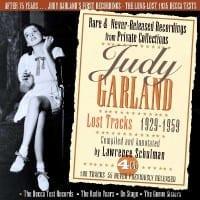
Judy Garland
Lost Tracks 1929 – 1959 – 4 CD
This set of 103 tracks includes no less than 53 previously unreleased recordings. This is a major event. The set…
Read more Read more€24,20 Sale!
Sale! Jo Stafford
Selected Sides 1943-1960 – 4CD
The previous JSP box sets of Jo Stafford have been the definitive reissues on this sweetly swinging and very hip…
Read more Add to cart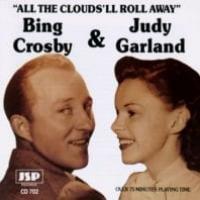 Sale!
Sale! Bing Crosby & Judy Garland
All The Clouds’ll Roll Away
Track Listing: 1. Wait Till The Sun Shines Nellie – 2. Liza – 3. Old Buttermilk Sky – 4. Gotta…
Read more Add to cart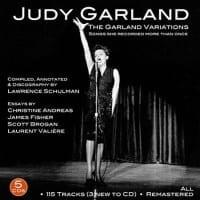 Sale!
Sale! Judy Garland
The Garland Variations5CD
For the first time uniting songs Judy Garland recorded in the studio more than once between 1937 and 1962, The…
Read more Add to cart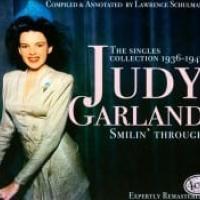 Sale!
Sale! Judy Garland – Smilin’ Through
The Singles Collection 1936-1947 – 4CD
This 4-disc deluxe set is the first-ever complete anthology of Judy’s singles at Decca Records that includes all her master…
Read more Add to cart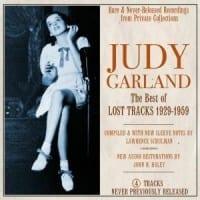 Sale!
Sale! Judy Garland
The Best Of Lost Tracks 1929-1959
Child star, film actress, recording artist, stage performer, Garland embodies the complete artist whose historical contribution to 20th century American…
Read more Add to cart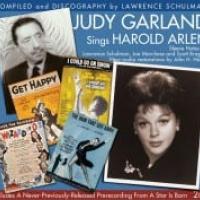 Sale!
Sale! Judy Garland
Sings Harold Arlen2CD
Having first sung Harold Arlen tunes – including the evergreen classic Over The Rainbow – in MGM’s ‘The Wizard of…
Read more Add to cart Sale!
Sale! Judy Garland
The Carnegie Hall Concert – 2CD
The famed April 23, 1961 concert won five Grammy Awards, including Album of the Year, and has been a best-seller…
Read more Add to cart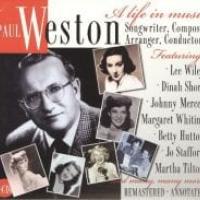
Paul Weston
A Life In Music4 CD
Track Listing: CD1: Beginnings And Early Successes: Lee Wiley with Paul Wetstein & His Orchestra: 1. Easy to Love –…
Read more Add to cart€24,20
